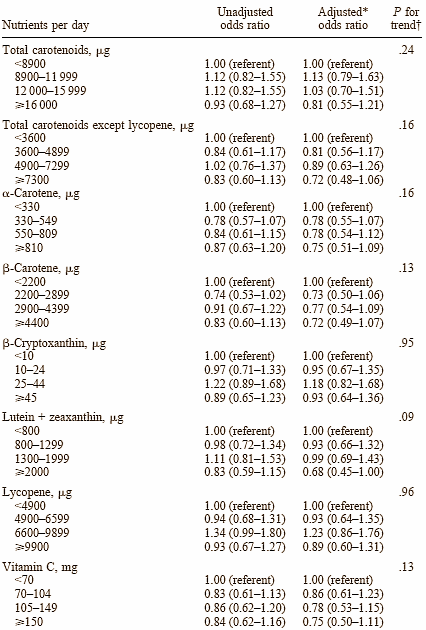|
Cabbage halves prostate cancer risk
Men who eat vegetables from the cabbage family three times a week are probably a half less likely to develop prostate cancer than men who never eat these types of vegetables. We infer this from a study published by researchers at the American Fred Hutchinson Cancer Research Center in the Journal of the National Cancer Institute. The same publication also suggests that a diet that is rich in green leafy vegetables reduces the risk of prostate cancer.
Fruit does not protect
When the researchers decided to carry out their study it was already known that fruit and vegetables in general reduce the likelihood of developing cancer, but not much was known about prostate cancer in particular. The researchers studied the diet of over six hundred men whose physicians had discovered that they had prostate cancer. The researchers compared these diets with those of an approximately equal-sized group of men without prostate cancer.
To start with the researchers found that fruit did not have a protective effect. The table with these data you can find here.
Vegetables fight prostate cancer
A diet that contained a lot of vegetables had more effect. The more vegetables men eat, the less likely they are to get prostate cancer. Men who eat 21 portions of vegetables per week have 35 percent less chance of developing prostate cancer than men who only eat 7 portions per week.
When the researchers started to break down their data further they noticed that cabbage-related vegetables had the strongest protective effect. Men who eat broccoli, cauliflower, sprouts or other brassicas three times a week or more nearly halve their risk of developing prostate cancer compared with the men who never ate cabbage-related vegetables.

Carotenoids
When the researchers came to process their data they had just gained access to a database that indicates the amount of carotenoids in different foodstuffs. The researchers discovered that there was almost a correlation between the combined intake of lutein and zeaxanthin on the one hand and prostate cancer on the other.

The P value is 0.09. If that had been 0.05 or lower then there would have been a statistical relationship.
The researchers suspect that lutein and zeaxanthin probably have a positive effect, but that the men did not eat sufficient amounts of leafy vegetables for the effect to show up. Lutein and zeaxanthin are found in leafy vegetables.
Source:
J Natl Cancer Inst. 2000 Jan 5;92(1):61-8.
More:
Chicken and egg reduce chances of surviving prostate cancer 06.02.2013
Cabbage can help prostate cancer survival 27.01.2013
Prostate cancer grows half as fast in walkers 20.01.2013
|



